U.S. buyer of P.E.I. potatoes warns of potential shortage, higher prices due to export ban
The P.E.I. Potato Board estimates $2 million a week in lost sales to U.S. customers
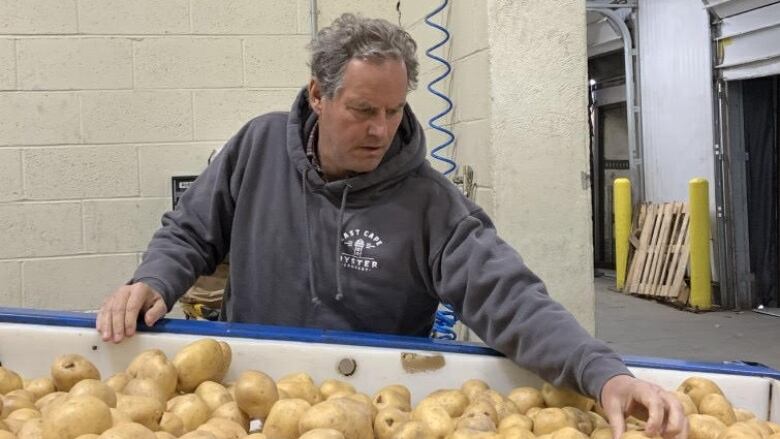
As the ban on the export of P.E.I. potatoes to the United States continues into a fourthweek, American buyers are looking elsewhere to fill orders, and one Boston-area dealer predicts consumers will pay more, the longer the border remains closed.
The Canadian Food Inspection Agency announced it was suspending the fresh potato trade to the U.S. following the discovery of potato wart in two Island fields, bringing exports to a sudden halt, usually worth about $120 million per year to the P.E.I. economy.
Greg Maheras, of J Maheras Co and Chelsea Creek Farms in Chelsea, Mass., said his company was expecting to purchase 400-500 truckloads ofP.E.I. potatoes over the course of the season.
"We're already paying a little bit higher prices on the varieties that we usually take off the Island. But going forward, we can see it. It's just going to get harder and harder," Maheras said.
"That's a huge gap to try to fill on the east coast, the potatoes that come off the Island and we were already in a very short supply situation in the U.S. to begin with. So this is just exacerbating that issue."
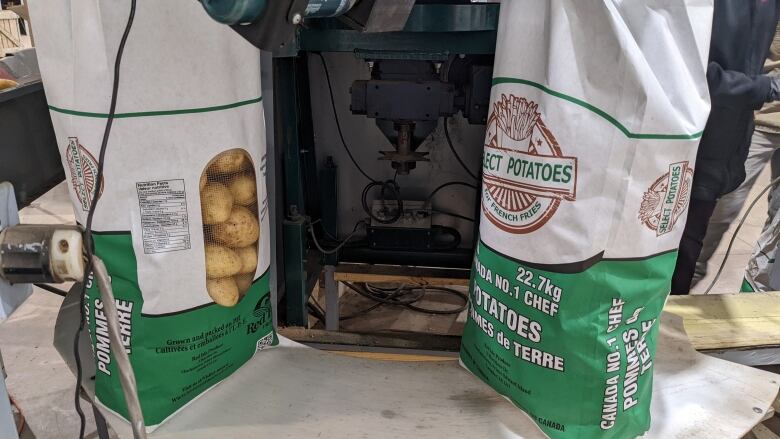
Maheras said he was surprised when the export ban was put in place on Nov. 21.
"For most of us in the industry, it came out of nowhere, we hadn't realized that there was any issue whatsoever," Maheras said.
"It came as a surprise, and I lost a little bit of sleep that week trying to figure out how we were going to fill all the gaps. A little stressful."
Supply questions
Maheras said he is looking to replace the P.E.I. potatoes with shipments from North Dakota, Maine and New Brunswick, but worries about finding enough.
"They didn't foresee this so they don't have the supplies going forward to be able to keep on filling this gap," Maheras said.
"I think we're going to go through their crop a lot more quickly than anyone anticipated. A month or two out here, we could be in a very short situation."
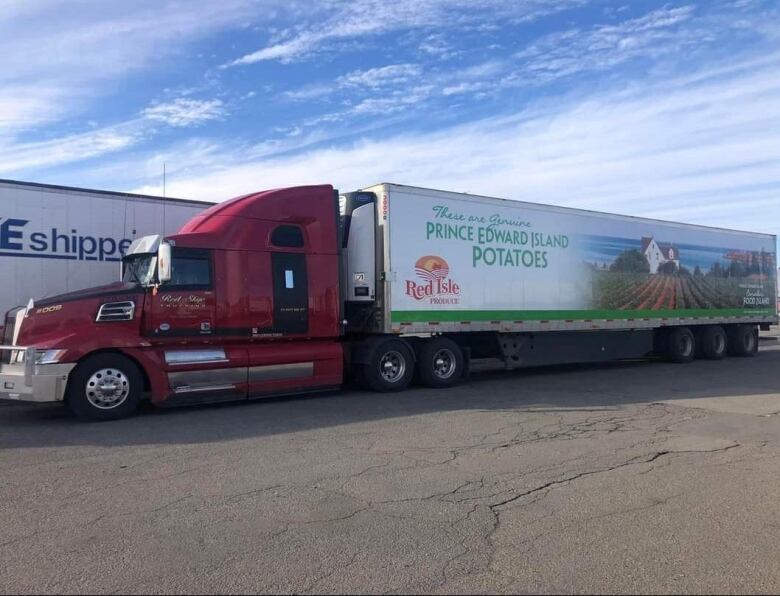
Maheras said prices are going to go up and consumers will be paying "considerably more" for potatoes.
"All of a sudden to lose, 20, 30 per cent of your source, it's going to be hard," Maheras said.
"We're already struggling to find enough potatoes for the next two weeks for orders that we already have booked."
We're already struggling to find enough potatoes for the next two weeks Greg Maheras, J Maheras Co
Maheras said he expects the price of potatoes to continue to increase, the longer the P.E.I. potatoes are blocked from the United States, and he worries how that will affect the industry.
"Potatoes are always been kind of an affordable commodity. Suddenly, if someone walks in and they're paying six or seven dollars for a bag of potatoes, that's going to raise an eyebrow," Maheras said.
"Usually at three, four dollars. I don't think it's an issue, but if it's a significant increase, I do think that that will hurt the potato industry."
P.E.I. reputation
However, Maheras said he's not worried about any long-term impact to the reputation of P.E.I. potatoes.
"For someone in the industry like us who've always used P.E.I. potatoes, appreciate the quality and the effort that goes into the potatoes up there," Maheras said.
"If the border reopens, we'll be back. You're not going to lose people who've always taken P.E.I. potatoes."
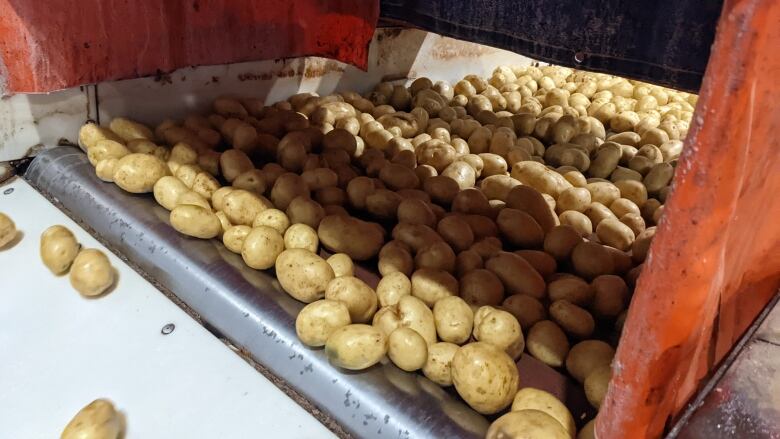
Bill Enserink, of Red Isle Produce in Charlottetown, has been doing business with Maheras for decades.
"It's a frustrating situation. There's just so many farm families and employees up here that really work hard to make sure they're producing the right varieties and the right quality to supply those northeast customers," Enserink said.
"It's just devastating for them, farm families and their employees that they're just doing nothing.

"I appreciate the fact that we have customers that value our product, and when the border opens, their plan is to come right back again. That's awesome."
Enserink said he understands that Maheras has to look elsewhere to replace the P.E.I. potatoes that are stuck in warehouses, banned from crossing the border.
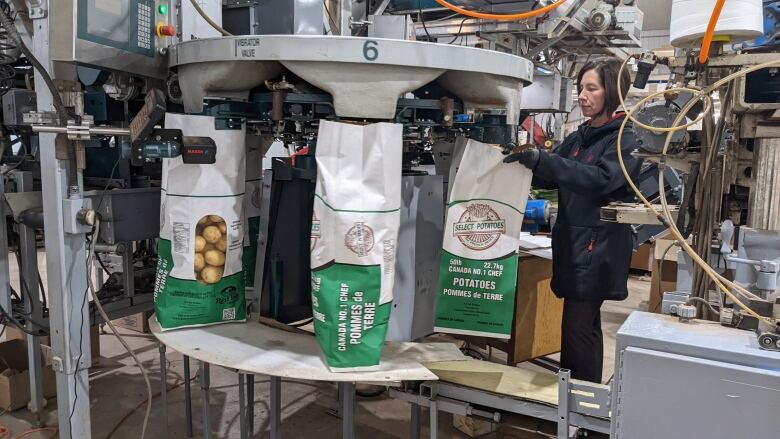
"He can't stop. He's got to keep going and he's got to pivot and he's got to find supply and he's got to supply his customers. The produce business in general, they're accustomed to doing that," Enserink said.
"Obviously we'd love to be doing it. Our infrastructure, our trucking situation, everything is set up to do it. And we just can't right now. So it's disheartening."












_(720p).jpg)


 OFFICIAL HD MUSIC VIDEO.jpg)
.jpg)



























































































